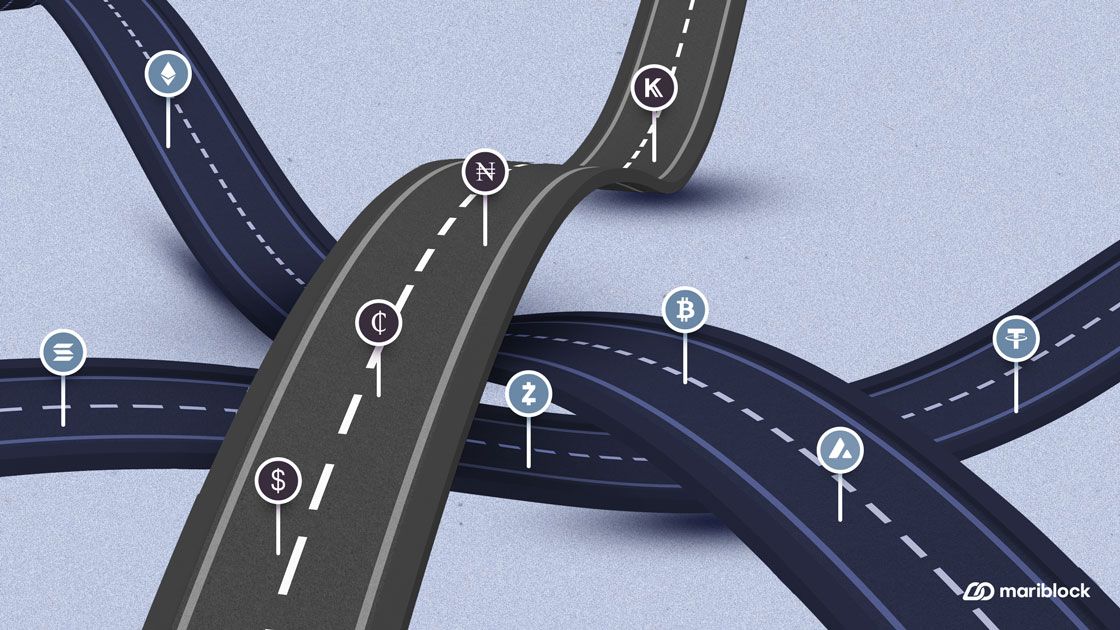
How crypto provides people with a way out during conflicts
During wars and protests, cryptocurrency offers people an escape route. It provides a means of financial freedom and independence from traditional financial systems.

During wars and protests, cryptocurrency offers people an escape route. It provides a means of financial freedom and independence from traditional financial systems.
Discussions around cryptocurrencies are often limited to their charts and prices — bitcoin is rising; XYZ is the next big coin — creating the illusion that crypto is about getting rich quickly. Because of its high volatility, many people lose money and ultimately brand crypto as a scam. In all of this, crypto’s most essential attribute goes missing: the fact that it offers access to an alternative global financial system. There are fewer examples than in war-plagued regions, where crypto has provided people a way out. How?
During wars, access to traditional financial services such as banks becomes limited or entirely blocked by design, leaving civilians vulnerable and without essential resources.
However, crypto’s ability to transcend borders and bypass traditional censorship mechanisms has made it invaluable for transferring money in and out of conflict zones. As traditional financial systems have faltered, cryptocurrencies have stepped in, providing a reliable channel for disbursing funds and enabling individuals to access essential goods and services.
In the face of Russia’s invasion of Ukraine, cryptocurrencies have provided a crucial escape route for civilians fleeing the region. Andrey, a Russian software developer, fled St. Petersburg, Russia, with his wife for Tbilisi, Georgia. To avoid attracting attention, they packed a suitcase each to appear like they were going on a vacation.
Upon reaching their destination, Andrey, who was once a crypto skeptic, converted their bank balance to cryptocurrencies and made arrangements with his primary client to pay him in USD Coin (USDC), a “stablecoin” whose value is fixed to the US dollar, for all upcoming payments.
Speaking with Fortune, Andrey said digital assets have made life easier for him and his wife. “Without crypto, it’d be very hard to get [any] meaningful money out of Russia.”
Similarly, Fadey, a 20-year-old Ukrainian, used bitcoin to pay for his bus ride across the border of Ukraine to Poland and secure accommodation for himself and his girlfriend by trading $600 worth of his bitcoin savings for złoty, the Polish national currency.
Here’s the real kicker: In Fadey’s pocket was a USB stick containing 40% of his life savings, about $2,000 worth of bitcoin. Without cryptocurrency, which allowed him to safely keep his own money, Fadey — who asked to be identified by a pseudonym to protect his privacy — might have been conscripted into the army to fight in the war.
Cryptocurrency’s ability to offer a way out has also been evident in Africa, particularly for Sudanese citizens seeking to escape conflict. SudanHodl, an expatriate in Ireland, shared with Forbes how he used bitcoin to fund his parents’ escape from Sudan. This led him to establish BTC Sudan, a bitcoin community aiding many others in escaping Sudan. In addition to his community, SudanHodl also organizes meetups, training sessions, and fundraisers for Sudanese medical staff.
“With bitcoin, people can bypass Sudan’s broken financial system and transfer support directly to where it’s needed.”
Speaking about the situation on the ground, he said:
“The medical situation is extremely dire. There is no humanitarian aid. Doctors are unable to purchase supplies. Some are using plastic bottles as chest drains,” he says. With bitcoin, people can bypass Sudan’s broken financial system and transfer support directly to where it’s needed.”
In Afghanistan, cryptocurrency adoption has surged as citizens seek to hedge against inflation and move their assets amidst the ongoing political turmoil. In 2021, blockchain analytics firm Chainalysis ranked Afghanistan 20 out of 154 countries for crypto adoption.
However, due to the Taliban’s strict financial controls, Afghan crypto users go to great lengths to mask their identities, often using VPNs to protect their privacy.
Beyond mere financial sustenance, crypto has also played a pivotal role in fueling and sustaining protests against oppressive regimes. Cryptocurrencies have enabled activists to mobilize funds and resources by circumventing traditional censorship structures, amplifying their voices and galvanizing resistance movements.
Case in point: The 2020 #EndSARS movement in Nigeria, initially an online campaign against police brutality, evolved into mass protests involving tens of thousands of citizens all over the country. As the numbers increased, so did the need for funding to cover food and water for protesters as well as medical supplies and hospital bills for those in need.
However, some organizations and groups supporting the protesters noticed their bank transactions slowed, and donation links stopped working. They then turned to bitcoin to raise over $150,000 to sustain the movement. The #EndSARS protest received support from Jack Dorsey, co-founder of X (formerly Twitter) and a bitcoin advocate.
Similarly, during the 2020-2021 Belarus protests against dictator Alexander Lukashenko, the Belarus Solidarity Foundation (BYSOL) raised over $2 million in Bitcoin donations in a month. The foundation used Bitcoin to help dissidents get around repression and financial monitoring. Speaking with Coindesk, Yaroslav Likhachevskiy, one of the founders of BYSOL, said that bitcoin’s ability to bypass government censorship was crucial in supporting the protests.
“More and more people are learning that cryptocurrencies can be used to solve real-life problems,”
Crypto has proven to be a vital tool for humanitarian aid in conflict zones and a powerful force for empowering individuals and protesters. Despite initially being skeptical or indifferent, many ad-hoc crypto users have acknowledged that it has made their lives easier.
“More and more people are learning that cryptocurrencies can be used to solve real-life problems,” Belarusian blockchain expert Eugene Romanenko told Coindesk.
Stay up-to-date with the latest blockchain developments in Africa
Sent weekly, on Sundays. Read past editions
Already a member?